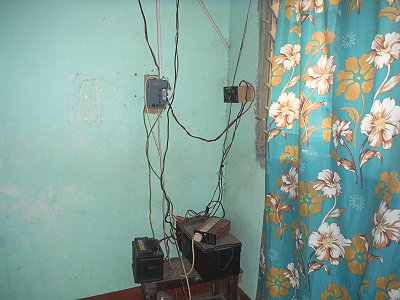After the summer break 2012, the new term had started with a lower level of activities as no additional means were available at this point in time from within the ordinary resource allocation through the regional Department of Education. A Mundus maris mission in October 2012 served to maintain contact and provide at least some equipment and modest operational funding to enable interested schools to plan some further excursions and other activities which they had found useful during the FAO pilots. The mission delivered two laptop computers for Serrekunda and Tanji, three digital cameras for teachers in Tanji and Gunjur and the equivalent of 100 Euros in Dalasi for each of the five schools to support the teachers and improve their working conditions.

The delivery of this support was done in the presence of two school inspectors and much appreciated. Significant additional needs require attention to put the schools on equal footing.
Serrekunda and Tanji have access to the electricity grid though the electric installations are prone to failure as can be seen from the photos.
Gunjur still requires stand alone solutions as it is not connected to mains. The solar panel is still working, e.g. for recharging cell phones. It would have to be replaced by a more powerful installation, when possible given the still high prices of solar panels. Immediate replacement of the old the battery at the end of its useful life would already go quite some way to stablise electricity supply in the schools in Gunjur. The cost is around 6,600 Dalasi (140 Euro) for a new battery.

The conversations started during the October mission were continued in a more structured manner in the occasion of a review workshop with the teachers and the inspectors that took place during the weekend of 15-16 December 2012 at the Serrekunda Lower Basic School.
The government's commitment to drive up the quality of teaching at school means an interest in providing easy access to additional resources for teachers and pupils, through better training for teachers and also through the internet and other means requiring electricity.
The work with the schools and the school inspectors also puts into evidence a more general commitment to involve citizens in practical activities aiming to put their lives on a more sustainable footing.
Specific measures for the economical use of water and for keeping the environment clean through civic action are part and parcel of this strategy. This merits more general recognition and emulation as the benefits are immediate in social, economic and environmental terms.








